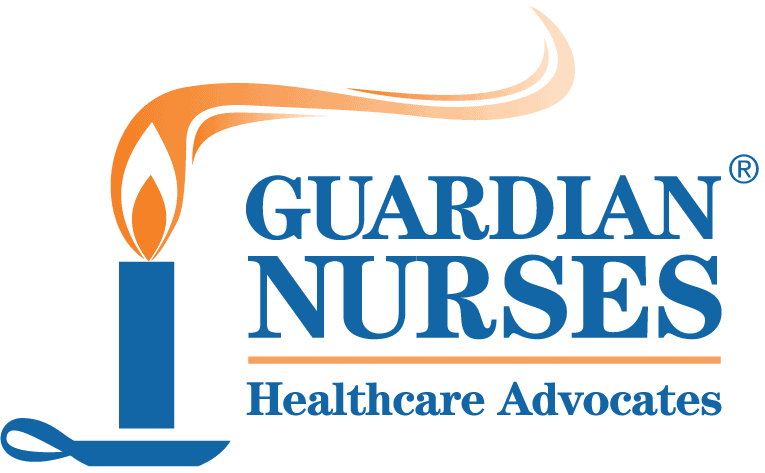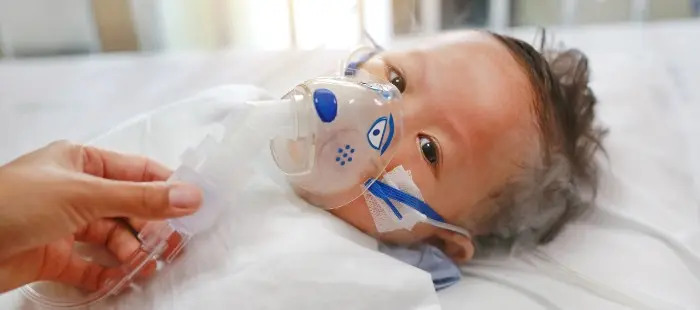Hospitals, both pediatric and adult, are filled beyond capacity, patients are waiting in already-overcrowded emergency rooms. Nurses are being assigned more patients than is safe. And thus begins a flu season that’s hitting harder and earlier than usual.
There’s no real mystery as to why viral illnesses like RSV are on the upswing. While we were protecting ourselves from COVID-19, there was very little flu or other respiratory illnesses. Now, as precautions against COVID are loosened, both flu and RSV are roaring back — and much earlier than previous seasonal waves.
Get ready, it’s going to be a tough cold and flu season.
— Betty Long, RN, MHA, President/CEO, Guardian Nurses Health Advocates
Respiratory Syncytial Virus (aka RSV)
Move over SARS-CoV-2 virus, make room for RSV! For the last two years, we have learned about viruses and seen the impact of the COVID-19 pandemic. Now, in the fall of 2022, many of us, but particularly our children, are getting sick.
What is RSV?
Respiratory syncytial (sin-SISH-uhl) virus is a common respiratory virus that usually causes mild, cold-like symptoms. Most people recover in a week or two, but RSV can be serious, especially for infants and older adults. In the U.S., RSV is the most common cause of bronchiolitis (inflammation of the small airways in the lung) and pneumonia (infection of the lungs) in kids younger than 1 year old.
How is RSV transmitted?
The virus is transmitted through respiratory droplets, but can live on hard surfaces such like a table or doorknob or crib rail. Because RSV is transmitted so quickly, if you are not the parents of an infant, do not kiss them. People infected with RSV are usually contagious for 3 to 8 days.
What are the symptoms of RSV?
People infected with RSV usually show symptoms within 4 to 6 days after getting infected. Symptoms usually include:
- Runny nose
- Decrease in appetite
- Coughing
- Sneezing
- Fever
- Wheezing
These symptoms usually appear in stages and not all at once. In very young infants with RSV, the only symptoms may be irritability, decreased activity, and breathing difficulties. The American Academy of Pediatrics has good information on-line for “when it’s more than just a cold.”
Is there a vaccine for RSV?
Just last week, a monoclonal antibody injection was approved in Europe. Hope is that it will be approved in the U.S. next year, but currently, there is no approved vaccine yet in the U.S. There is a medicine – Palivizumab – that can help protect some babies at high risk for severe RSV disease. If you are concerned about your child’s risk for severe RSV infection, talk to your child’s healthcare provider.
How do I prevent spreading RSV?
If you have cold-like symptoms you should:
- Cover your coughs and sneezes with a tissue or your upper shirt sleeve, not your hands
- Wash your hands (heard this before?) often with soap and water for at least 20 seconds
- Avoid close contact, such as kissing, shaking hands, and sharing cups and eating utensils, with others
- Clean frequently touched surfaces such as doorknobs and mobile devices
- Ideally, people with cold-like symptoms should not interact with children at high risk for severe RSV, including premature infants, children younger than 2 years old with chronic lung or heart conditions, children with weakened immune systems, or children with neuromuscular disorders.
Parents of children at high risk for developing severe RSV should help their child, when possible, do the following:
- Avoid close contact with sick people
- Wash their hands often with soap and water for at least 20 seconds
- Avoid touching their face with unwashed hands
- Limit the time they spend in childcare centers or other potentially contagious settings during periods of high RSV activity.
- What is the treatment for RSV?
- Most RSV infections go away on their own in a week or two. Currently, there is no specific treatment for an RSV infection.
Healthy adults and infants infected with RSV don’t usually need to be hospitalized. But some people with RSV infection, especially older adults and infants younger than 6 months, may need to be hospitalized if they are having trouble breathing or are dehydrated. In the most severe cases, a person may require additional oxygen, or IV fluids (if they can’t eat or drink enough), or steroids, or intubation (have a breathing tube inserted through the mouth and down to the airway) with mechanical ventilation (a machine to help a person breathe). In most of these cases, hospitalization only lasts a few days.
Take steps to relieve symptoms:
- Manage fever and pain with over-the-counter fever reducers and pain relievers, such as acetaminophen (if appropriate) or ibuprofen. (Never give aspirin to children.)
- Talk to your healthcare provider before giving your child nonprescription cold medicines. Some medicines contain ingredients that are not good for children.
- Drink enough fluids. It is important for people with RSV infection to drink enough fluids to prevent dehydration.
Use of nasal saline drops and suctioning may help clear a stuffy nose.
Information compiled from the American Academy of Pediatrics, the CDC, and the pediatric team at Guardian Nurses.

